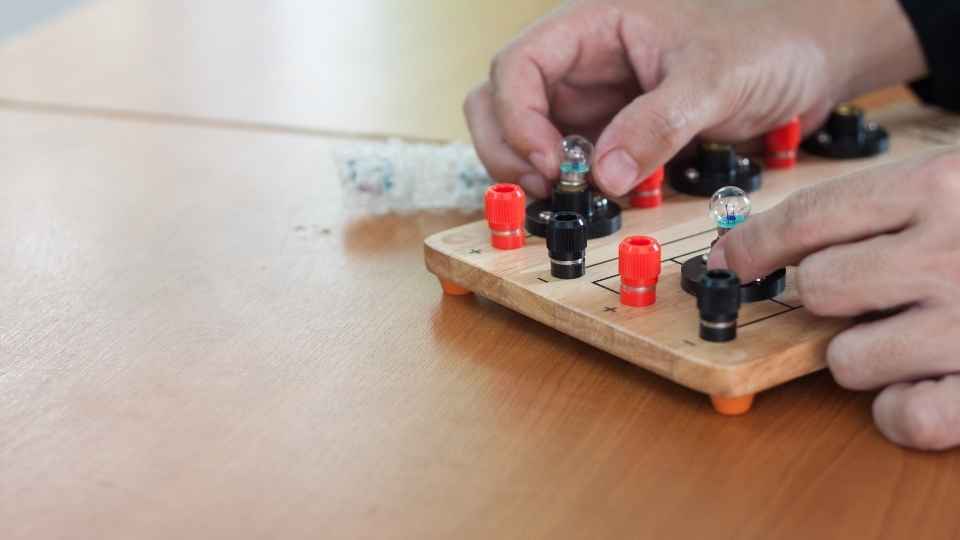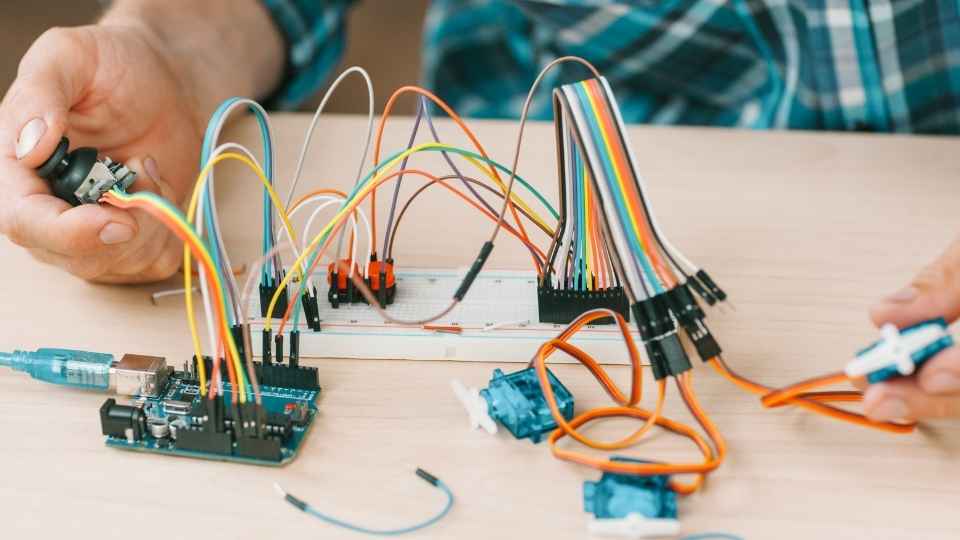
In the ever-evolving world of electronics, the true test of skill lies not only in theoretical knowledge but also in practical application. It is through hands-on challenges that budding enthusiasts truly showcase their innovative abilities and push the boundaries of what is possible.
Dive into a realm where contests and competitions reign supreme, allowing individuals to demonstrate their expertise and passion for all things electronic. From beginner contests to complex circuitry puzzles, this article explores the thrilling world of hands-on electronics challenges that will captivate even the most freedom-seeking minds.
Key Takeaways
- Beginner contests provide a valuable platform for testing skills and gaining practical experience in electronics.
- Project competitions offer an opportunity to demonstrate innovative skills and proficiency in electronics by designing cutting-edge prototypes to solve real-world problems.
- DIY showdowns focus on creativity, problem-solving, and innovation, allowing contestants to showcase their practical skills and hands-on abilities.
- Building challenges push the boundaries of knowledge and skills in electronics, encouraging critical thinking, practical application, and problem-solving.
Beginner Contests: Starting Your Electronics Journey
Beginner contests provide a valuable platform for individuals embarking on their electronics journey to test their skills and gain practical experience. These contests offer a unique opportunity for aspiring electronics enthusiasts to showcase their technical abilities by participating in hands-on challenges.
Through these competitions, beginners can explore different aspects of electronics, such as circuit design, soldering, programming, and troubleshooting. By engaging in these activities, participants can develop a deeper understanding of basic electronic components and how they interact with each other.
Moreover, these contests foster a sense of freedom as contestants have the flexibility to experiment with various techniques and solutions to overcome the given challenges.
Participating in beginner contests serves as an excellent stepping stone towards more advanced project competitions where individuals can further refine their skills and showcase their innovative ideas and creations.
Project Competitions: Showcasing Your Innovative Skills
Exhibiting your inventive abilities, project competitions provide an opportunity to demonstrate your innovative skills and showcase your proficiency in the field of electronics. These competitions are a platform where you can push the boundaries of your creativity and bring your ideas to life.

Here are three ways project competitions enable you to showcase your innovative skills:
Designing cutting-edge prototypes: By participating in project competitions, you have the chance to design and build advanced electronic prototypes that solve real-world problems. This allows you to display your ability to conceptualize, design, and implement innovative solutions.
Integrating diverse technologies: Project competitions often require participants to integrate various technologies such as sensors, actuators, microcontrollers, and communication modules into their projects. This enables you to demonstrate your expertise in understanding different hardware components and integrating them seamlessly.
Presenting polished documentation: Alongside the functional prototype, project competitions also emphasize the importance of presenting well-documented reports or presentations about your project's development process, challenges faced, and solutions implemented. This showcases not only your technical skills but also highlights your ability to communicate complex ideas effectively.
DIY Showdowns: Putting Your Hands-On Abilities to the Test
DIY Showdowns provide a platform for individuals to showcase their practical skills and put their hands-on abilities to the test in a challenging and competitive environment.
These events offer participants an opportunity to demonstrate their mastery of various do-it-yourself projects, from woodworking and metalworking to electronics and robotics.
The goal is not only to highlight technical expertise but also to foster creativity, problem-solving, and innovation.

DIY Showdowns attract a diverse range of participants who desire freedom in expressing their unique ideas through tangible creations.
These contests often require participants to adhere to specific guidelines, such as using limited resources or completing tasks within a designated time frame.
This pushes contestants to think on their feet, adapt quickly, and produce high-quality results.
Ultimately, DIY Showdowns serve as a platform for individuals who relish the freedom of exploring practical skills while competing against like-minded enthusiasts in thrilling and engaging challenges.
Building Challenges: Pushing the Boundaries of Electronics
Participants in building challenges are tasked with pushing the boundaries of their knowledge and skills in the realm of electronics. These challenges provide a platform for individuals to showcase their creativity and expertise, all while fostering a sense of freedom and exploration.
Here are three examples of what these building challenges entail:
Designing intricate circuit boards that seamlessly integrate various components, allowing for maximum efficiency and functionality.

Constructing complex electronic systems from scratch, incorporating sensors, actuators, and microcontrollers to create innovative solutions.
Building robots or drones that can navigate obstacles autonomously using advanced algorithms and control systems.
Each challenge requires participants to think critically, apply theoretical knowledge practically, and solve problems creatively. These building challenges not only push the boundaries of what is possible in electronics but also encourage individuals to constantly strive for improvement.
As we delve into the world of circuitry puzzles: solving complex problems with electronics, let's explore how these competitions foster an environment where innovation thrives.
Circuitry Puzzles: Solving Complex Problems With Electronics
As we explore the realm of circuitry puzzles, individuals are presented with complex problems that require innovative solutions using electronics. These puzzles challenge participants to think critically and apply their knowledge of circuits, components, and electrical principles to find solutions. By engaging in these puzzles, individuals can sharpen their problem-solving skills while deepening their understanding of electronic systems.
Circuitry puzzles often involve designing and constructing circuits that perform specific tasks or meet certain criteria. Participants must carefully choose the appropriate components, calculate values for resistors and capacitors, and ensure proper connections to achieve desired outcomes. These challenges demand a high level of technical expertise and attention to detail.
The freedom lies in the creativity individuals can employ when tackling these circuitry puzzles. There is no one-size-fits-all solution; instead, participants have the liberty to experiment with different approaches until they find an effective solution. This fosters an environment where innovation thrives and encourages participants to push the boundaries of what is possible within the realm of electronics.

Frequently Asked Questions
How Can I Participate in Beginner Contests and What Are the Requirements?
To participate in beginner contests, you must meet the specified requirements such as age restrictions and knowledge level. These contests provide hands-on electronics challenges for aspiring participants to showcase their skills and learn from experienced professionals in the field.
Are There Any Age Restrictions for Project Competitions?
Age restrictions for project competitions vary depending on the specific contest or competition. It is important to carefully review the rules and guidelines provided by the organizers to determine if there are any age limitations in place.
What Are Some Examples of DIY Showdowns and What Skills Do They Test?
DIY showdowns are competitions that test participants' skills in electronics. Examples include the Hackaday Prize and the Instructables contests. These challenges assess a wide range of abilities, such as circuit design, soldering, programming, and problem-solving.
How Can I Join a Building Challenge and What Kind of Projects Can I Expect?
To join a building challenge, one must first research organizations or communities that host such events. These challenges often involve creating innovative projects using electronics components and may include designing robots, building circuits, or constructing automation systems.
Do Circuitry Puzzles Require Advanced Knowledge in Electronics or Can Beginners Participate Too?
Beginners can participate in circuitry puzzles as they do not require advanced knowledge in electronics. These challenges are designed to provide a learning opportunity for participants of all skill levels, encouraging growth and exploration in the field of electronics.
 Basic Electronics ConceptsEssential ToolsCircuit Design BasicsMicrocontrollersDIY Electronics ProjectsRoboticsPrivacy PolicyTerms And Conditions
Basic Electronics ConceptsEssential ToolsCircuit Design BasicsMicrocontrollersDIY Electronics ProjectsRoboticsPrivacy PolicyTerms And Conditions
